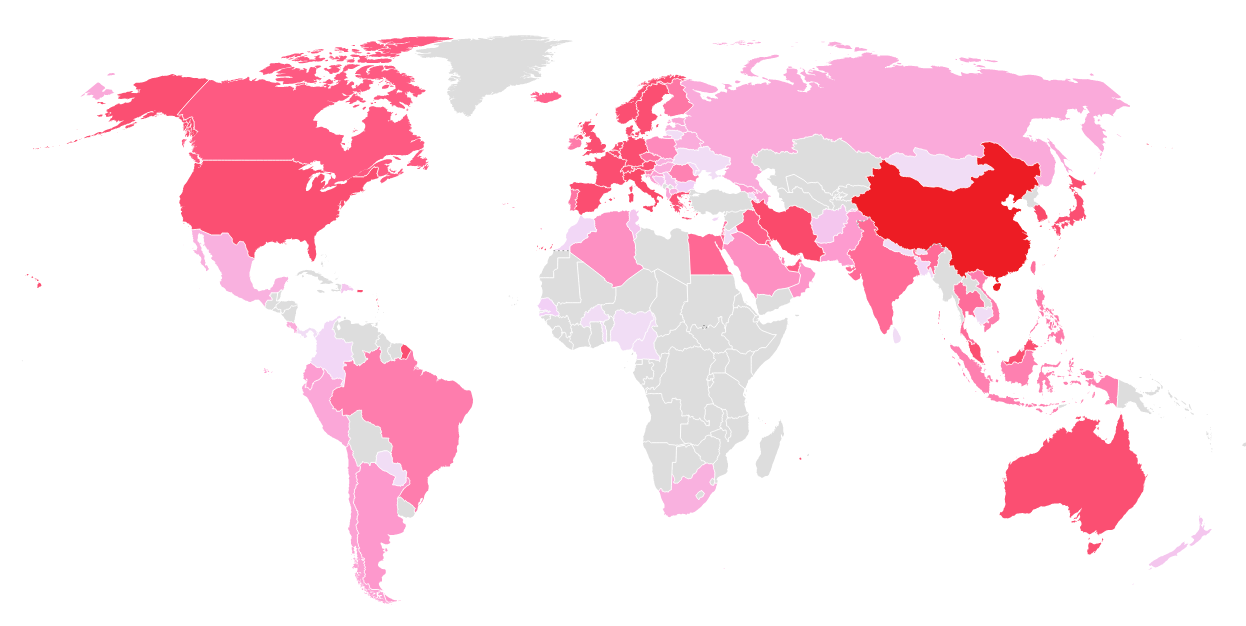Coronavirus
Coronavirus (COVID-19) has increased U.S unemployment rate

Unemployment in the U.S. has risen to levels most recently seen during the Great Depression of the 1930s, with 1 in 6 American employees thrown out of work due to coronavirus.
Last week, more than 4.4 million laid-off employees applied
for unemployment benefits, the government. In total, some 26 million people —
more than the population of the six largest U.S. cities combined — have now
applied for unemployment benefits in five weeks, an epic crisis that has
increased the stakes in the debate over how and when to lift the state-ordered
home-stay limits that have lead to shut down factories and other businesses across the globe.
Abroad, there were mixed reports about the outbreak. Some
nations, including Greece, Bangladesh and Malaysia, have announced extensions
to their lockdowns. Vietnam, New Zealand and Croatia were among those who were
working to end or ease these measures.
According to John Nkengasong, director of the Africa Centers
for Disease Control and Prevention, 43% of cases in Africa rose from 16,000 to
26,000 cases in the past week. The statistics highlighted the recent alert from
the World Health Organization that the virus could kill more than 300,000 people
in Africa and drive 30 million into extreme poverty.
Huge lines have developed in food banks from El Paso, Texas,
to the suburbs of Paris, and food scarcity are hitting Africa especially hard.
The European Union has promised EUR 20 billion ($22 billion)
to support disadvantaged people worldwide. EU leaders planned a virtual summit
on Thursday to take stock of the harm done to the bloc's own people by the
crisis and to draw up an economic rescue plan.
The coronavirus killed more than 184,000 people worldwide,
including about 47,000 in the United States, according to a study collected by
John Hopkins University from official government statistics. The real numbers
are almost definitely much higher.
In the U.S., the economic effects of the shutdowns have
caused violent protests in state capitals by demonstrators demanding that
businesses be reopened, and President Donald Trump has expressed his impatience
with the restrictions. Some governors have started to ease the situation amid
warnings from the health authorities that it might be too early to do so
without triggering new infections. In Georgia, gyms, hair salons and bowling
alleys can be reopened on Friday. Texas has restored state parks.
The high unemployment rate of the Great Depression continued
for 10 years and peaked at about 25 percent. U.S. authorities are hoping for a
stronger turnaround this time, but there could be more cuts coming from many
small companies who have tried in vain to obtain loans from the federal
assistance programme.
Although the health crisis has eased at bit in places like Spain,
Italy, and France, experts warn it is far from over, and the possibility of new
outbreaks is looming at large.
German Chancellor Angela Merkel blamed some German states
for moving too fast to seek and re-open their economies. Germany has been
lauded for its response to the pandemic and has registered a significantly
lower death rate than other major European countries.
Governments bear this danger in mind with the start of
Ramadan, the holy month of daytime fasting, overnight festivities and public
prayer that will begin for the world's 1.8 billion Muslims. Many Muslim leaders
have closed mosques or forbade joint prayers to avoid new infections.
The virus also interrupted the Christian Holy Week, the
Passover, the Islamic Hajj pilgrimage and other big religious events.
Authorities in the capital of Indonesia, the world's most
populous Muslim-majority country, expanded its disease-fighting restrictions to
cover all of Ramadan, while Turkey banned public eating during holidays.
Pakistani Prime Minister Imran Khan bowed to the country's
religious clerics, refusing to close the mosques despite a nation's doctors
warning that these meetings are like a petri dish to spread the virus in a
world with a weak health care system.



Post a Comment
0 Comments